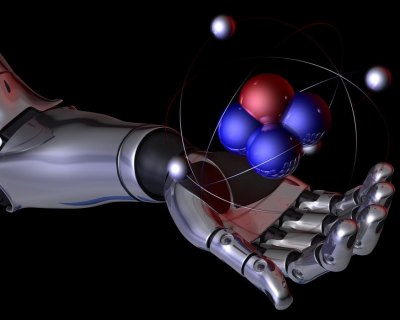Pew report:
Could robots leave us jobless by 2025?

By 2025, cars and delivery trucks could drive themselves. Robocop may become a reality. And the routine work done by paralegals and medical secretaries may be done by computers, according to a Pew Research Center report published Aug. 6.
But roughly 1,900 analysts responding to questions from Pew disagreed about whether the next technological wave will bring different jobs that compensate for the losses. And many are concerned that the educational system is not adequately preparing us for the future. According to the report:
- By 2025, artificial intelligence and robotics will be integrated into “nearly every aspect of most people’s lives." These changes could range from manufacturing technology to gadgets that perform everyday household chores. Some experts expressed concern, however, that the very wealthy will benefit most.
- Transportation will change dramatically. Self-driving cars could become increasingly common in the next decade, the report said. This could change the way people think of car ownership. It could also put truck drivers out of a job.
- We will grow more dependent on artificial intelligence in our day-to-day lives. Instead of employing a “personal assistant,” business leaders may get personal assistance from various devices.
- Approximately half of the analysts believe that technology could help the job market. “Some 52 percent expect these technologies to have a neutral to positive impact on jobs — that is, they disagreed with the statement that ‘networked, automated, artificial intelligence applications and robotic devices [will] have displaced more jobs than they have created by 2025,’ ” the report said. Some analysts point out that historically technology has created as many jobs as it displaces.
- The other half thought technology will have a negative impact on jobs. According to the report, “48 percent of our survey respondents agree with the statement that ‘networked, automated, artificial intelligence applications and robotic devices [will] have displaced more jobs than they have created by 2025.’ ”
- Analysts believe the “work” concept is likely to change. If drones are making deliveries and robots are mowing the grass, that leaves time for humans to do other things.Employees could experience more leisure time. “A notable number of experts take it for granted that many of tomorrow’s jobs will be held by robots or digital agents — and express hope that this will inspire us as a society to completely redefine our notions of work and employment,” the report says.
- Our educational system is not doing enough to prepare the next generation of workers. Schools are “not up to the challenge of preparing workers for the technology-and robotics-centric nature of employment in the future."
But we expected all that. Here are some of the responses that Pew considers out of the box:
- We could get sick of all this artificial intelligence. The gadgetry could produce a backlash, a “machine-free” movement.
- Warfare and police work could be “increasingly mechanized.” One analyst predicted “early versions of Robocop” on city streets.
- The nature of memory and imagination will change. Robots will help us remember facts, statistics, etc. Gadgets will make “recommendations” for us.
- Human interaction could become a luxury.
On the upside, technology is not destiny, the analysts point out. “Although technological advancement often seems to take on a mind of its own," the report said, "humans are in control of the political, social and economic systems that will ultimately determine whether the coming wave of technological change has a positive or negative impact on jobs and employment.”
Related:
Robots take strides into workplace
4 tech changes that could make things worse
6 predictions for the Internet in 2025
Pulse: Americans foresee a high-tech world

